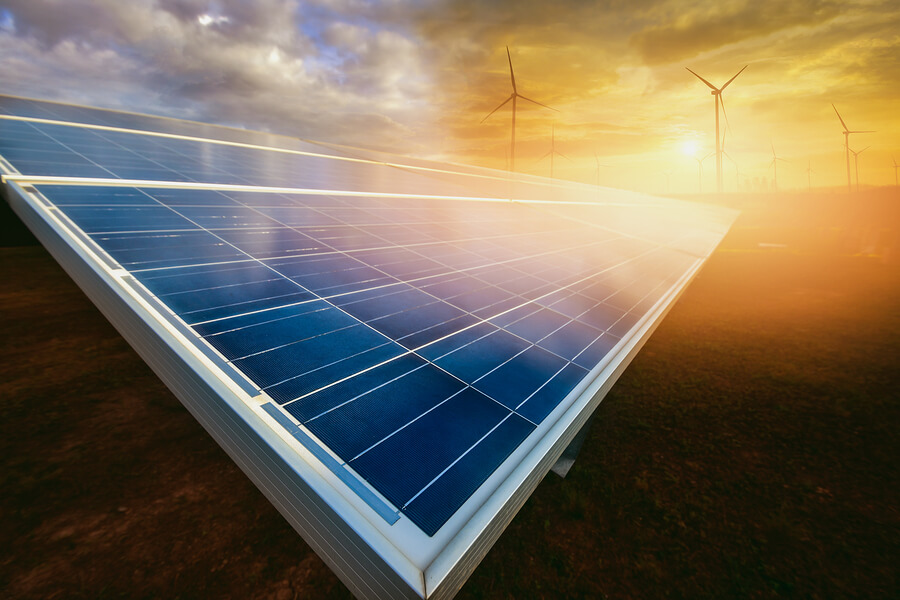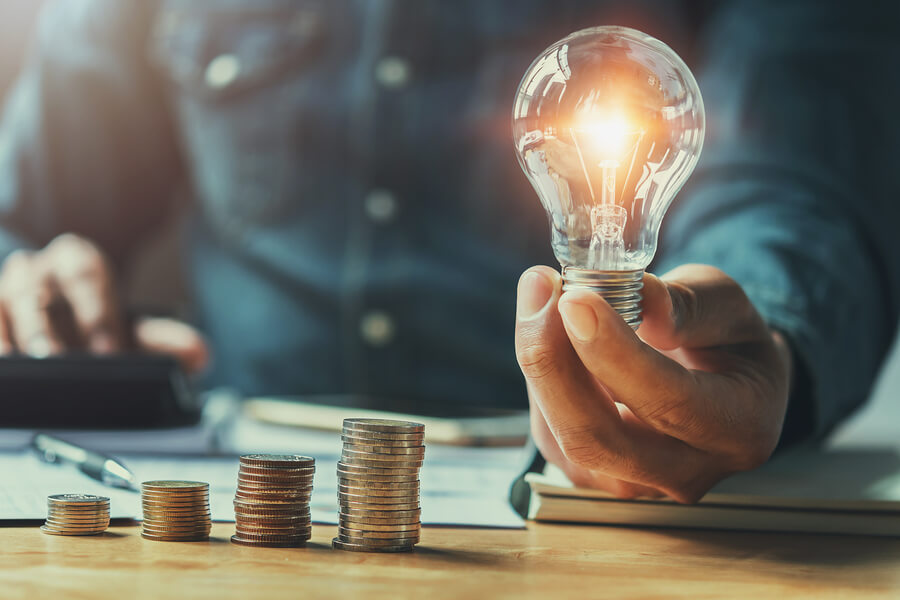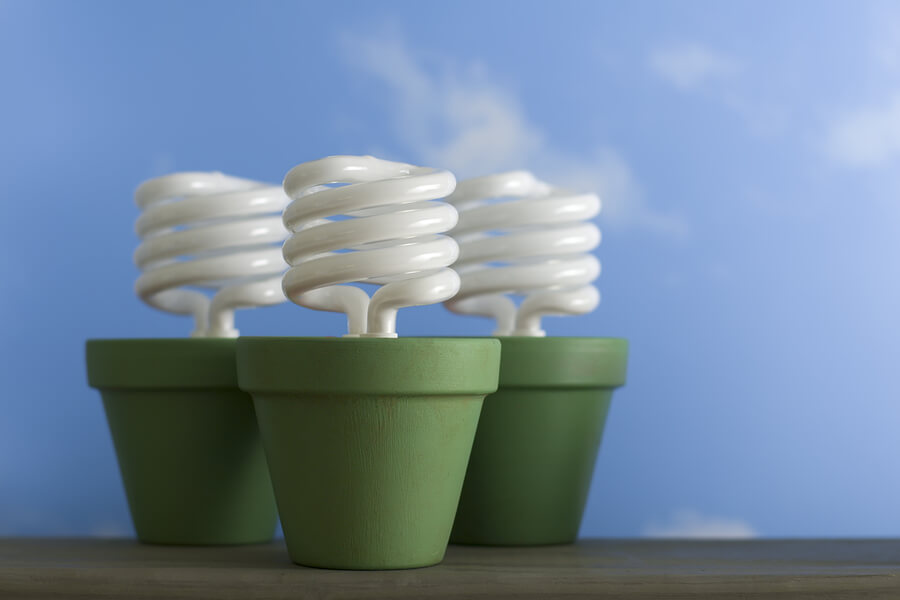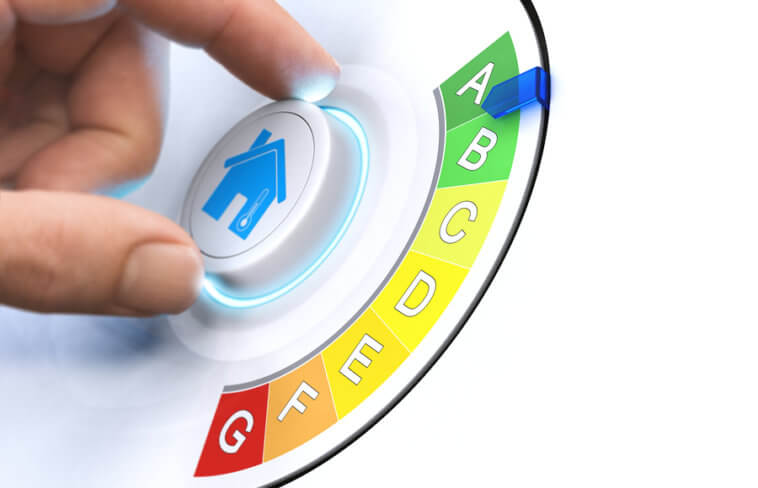Table of Contents
Recently, the International Energy Agency announced the start of a commission for urgent action on energy efficiency. While this measure is mostly concerned with the health of our planet, there are many other benefits. If arguments about global warming, carbon footprint, rising sea levels and the apocalypse can’t convince you, then perhaps actual cost savings will. Beyond just ‘saving the planet’, being energy efficient around your home or office will actually help you save money today.
In case you don’t believe it, consider the report by the Department of Energy that estimates the average American spends $2,000 a year on energy bills. By being more energy efficient, up to 30% of these costs can be curtailed. It is also important to note the difference between energy conservation and efficiency. The former, conservation, is about cutting back on activities that conserve energy. Meanwhile, efficiency is about being able to do what you want without consuming too much energy.
Ready to learn more? See our top 12 tips down below!

Why is Energy Efficiency Important?
All of our actions have consequences, and unfortunately most of our energy consumption has had a negative effect. You may not notice it while you’re going about daily activities, but the effects are real. Most of the electricity is generated by fossil fuels like natural gas and coal, which both produce harmful emissions. Even nuclear energy leaves the problem of nuclear waste that has to be dumped into the ocean. Renewable sources of energy account for only about 20% of the power produced, which is an improvement but not nearly enough.
These harmful emissions lead to global warming as they trap heat from the sun in the atmosphere. Furthermore, many of the emissions like nitrogen oxide and sulphur dioxide causes problems like smog, lung problems and even heart disease. That is even before considering other problems on the ground and the effects on nature and wildlife.
However, by becoming more energy efficient in our homes, there will be less demand from power from these sources, which means there will be less harmful emissions. In so doing, we can all contribute to making the planet more habitable, especially for us.

Top 12 Ways to be More Energy Efficient
It really is amazing how little it takes to be more energy efficient, and here are 12 ways you can start today:
1. Ditch Incandescent Bulbs
Incandescent bulbs are being slowly phased out, and everyone ought to get on the bandwagon. LED bulbs consume up to 90% less energy, which translates to about $100 in savings a year according to NRDC. Collectively, this could potentially amount to $12.5 billion if LEDs became universal. Despite their initial cost, they last much longer and the cost savings definitely make up for it.
2. Use Energy Star Products
The EPA grants the Energy Star to products that prove to be more energy efficient by partnering with manufacturers of electric devices. The NRDC estimates that by switching over to products with the Energy Star label, one could save up to $500 a year as these products use up to 50% less electricity.
3. Properly Insulate Your Home
A lot of energy is used to heat your home, and most of that can be lost through leaks around windows and doors. To prevent any wastage, consider adding weather stripping around the frames of drafty windows and caulk to seal any gaps and cracks in the walls.
4. Efficiently Heat and Cool Your Home
Instead of relying on conventional heating and cooling systems, try using heat pumps. These move warm air from warmer spaces to cooler spaces and vice versa, eliminating the need for any heating whatsoever. Some like the Pioneer heat pump can be used both for the average home or small office.
5. Lower Your Thermostat
When you’re not in your home, it may be beneficial to lower the temperature on your thermostat. Energy.gov estimates that savings of between 5% and 15% can be achieved simply by lowering the thermostat by 10 to 15 degrees. Alternatively, a smart thermostat can do this for you automatically when need be.
6. Limit Space Heater Use
Space heaters use up to 1,500 watts of power to run, and this can be a costly way to heat the home. Instead, try Energy Star-rated heaters that use less heat or replace them with air conditioners and central air conditioning units. Nowadays, there are great options to choose from if you have to have one such as the Bovado with motion sensor or the Dr Infrared with improved technology.
7. Install Storm Windows and Doors
These can be a cheap and effective way of reducing heat loss from your home. Storm doors and windows usually have a low emission coating that prevents loss of heat by up to 50% from the doors and windows.
8. Check for Leaks in Your Home
You can hire an energy expert to check for any sources of leaks around your home that you may not have even thought about. A certified energy auditor will inspect your home for potential sources of energy losses and propose improvements for your home. They normally charge per square foot, but it’s well worth it if you think your home is wasting energy.
9. Wash Clothes with Cold Water
Did you know your washer uses 90% of the energy just to heat up the water and only the 10% remaining to wash clothes? If you didn’t, then it’s time to avoid this extra unnecessary expense. In fact, modern washing machines don’t need hot water to thoroughly clean clothes. Unless you're washing heavy-duty smells and stains, stick with cool water.
10. Hunt Down Energy Vampires
Electric devices still use electricity even when they are turned off, and these are called phantom loads or energy vampires. To reduce this wastage, unplug all devices that are not in use or use smart power strips. These cut off power to devices that are not in use and reduce costs.
11. Evaluate your HVAC System
Your own HVAC system may be working against you if it has any loose connections, un-lubricated parts or uncleaned coils. All these factors can weigh down the HVAC system and lead to more energy waste, so it’s important to occasionally check its condition to ensure it is in good form.
12. Check Your Family's Habits
Do you often leave lights turned on or devices running even if you’re out of the house or asleep? It may be time to look inwards at how you are also contributing to increasing energy costs. After all, none of the aforementioned interventions will do any good unless you make a commitment to energy efficiency.

What are the Benefits of Energy Efficiency?
Energy efficiency has a lot of benefits to everyone in many ways. Some of these other benefits of energy efficiency include:
Cutting Energy Costs
A lot of expenses are spent on heating the home and office especially, yet much of it is lost through inefficient systems. By being more conscious of energy, there would be a lot more money saved on energy costs that could be otherwise put in use. For the average homeowner, savings due to energy efficiency could be as much as $500 a year. The burden of energy costs is especially significant for low-income households that use a large portion of their income on energy costs.
Better Health
Pollutants that are released by energy-producing plants linger in the air and are eventually inhaled by us. These pollutants have been connected to problems such as asthma and other breathing problems; even heart disease. Lesser emissions through energy efficiency could lead to better health for everyone living around these plants and everyone else.
Creating Jobs
There are currently over 2.2 million people employed in companies that produce clean energy and energy-efficient products. These are a lot more than those employed in fossil fuel energy, and a focus on energy efficiency could see this number rising in future and lowering unemployment.

How does Energy Efficiency Help the Environment?
When there is less demand for energy in our homes and offices, energy producing plants don’t have to use as much fossil fuels to generate electricity. This means there will be both less demand for fossil fuels and harmful emissions from their use. Acquiring fossil fuels like natural gas and coal do a lot of harm to the environment because a large portion of natural habitat is displaced. Moreover, the mines produce waste products that lead to water pollution, further destroying the surrounding environment. When a mine has been stripped, the land left behind is barren and uninhabitable for years.
Once the fossil fuels are mined and shipped to the production plants, they are burned to produce steam for turning turbines and producing electricity. In the process, many by-products are emitted into the air including nitrous oxide and sulphur dioxide. Both of these compounds lead to acid rain that destroys nature when it falls. Not to forget all the solid waste generated by these plants that ends up being dumped and making the land beneath uninhabitable.
Clearly, there will be a lot of benefits to the environment if fossil fuels are no longer in such a demand, and it only takes everyone’s attention to energy efficiency.
Do you have top tips to share? Let us know your energy-saving habits down below!
Sources:
https://www.quickenloans.com/blog/16-ways-to-make-your-home-more-energy-efficient
https://www.ucsusa.org/clean-energy/coal-and-other-fossil-fuels/environmental-impacts-of-natural-gas




Comments
Loading…